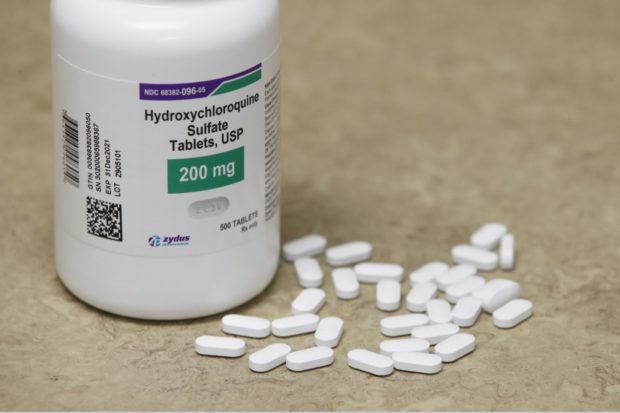
(FILES) This file photograph taken on May 20, 2020, shows a bottle and pills of Hydroxychloroquine as they sit on a counter at Rock Canyon Pharmacy in Provo, Utah. – The United States on June 15, 2020 withdrew emergency use authorizations for two coronavirus treatments favored by President Donald Trump, citing their lack of efficacy and safety concerns. “It is no longer reasonable to believe that oral formulations of HCQ (hydroxychloroquine) and CQ (chloroquine) may be effective in treating COVID-19,” Denise Hinton, chief scientist of the Food and Drug Administration (FDA) wrote in a letter. (Photo by GEORGE FREY / AFP)
PARIS — Three woman scientists who have spoken to the press about the merits of the anti-malarial drug hydroxychloroquine for treating COVID-19 spoke out this week against cyber-bullying including death threats targeting female colleagues.
“Women may be more prone than men to cyberbullying, which aims to denigrate their probity and scientific competence,” they wrote in a letter published in The Lancet on Wednesday.
They referenced scientific articles reporting “receipt of death threats and cyber harassment in Brazil, France, and Switzerland after publication of studies that did not demonstrate clinical efficacy” for hydroxychloroquine.
“We fully support our colleagues and feel concerned by what they report, having been victims ourselves… to varying degrees of threats of all kinds, including violent defamatory statements, stalking and misogynistic and gender-oriented attacks,” they wrote.
The authors are Caroline Samer, a Swiss pharmacologist, and infectious diseases specialists Alexandra Calmy and Karine Lacombe, of Switzerland and France respectively.
“These attacks were exclusively linked to public interventions in the media, in which we attempted to rationally explain the current state of knowledge on the effectiveness and safety of hydroxychloroquine in the treatment and prevention of COVID-19,” they wrote.
“All threats directed at researchers and clinicians must be clearly and unanimously rejected by the scientific community,” they said.
The drug, the subject of heated debate especially in France where it has been championed by Marseille-based medical professor Didier Raoult, has long been used to treat malaria, rheumatoid arthritis, and lupus.
In June, the British-led Recovery trial team said that hydroxychloroquine does nothing to reduce coronavirus mortality, a finding corroborated by the World Health Organization.